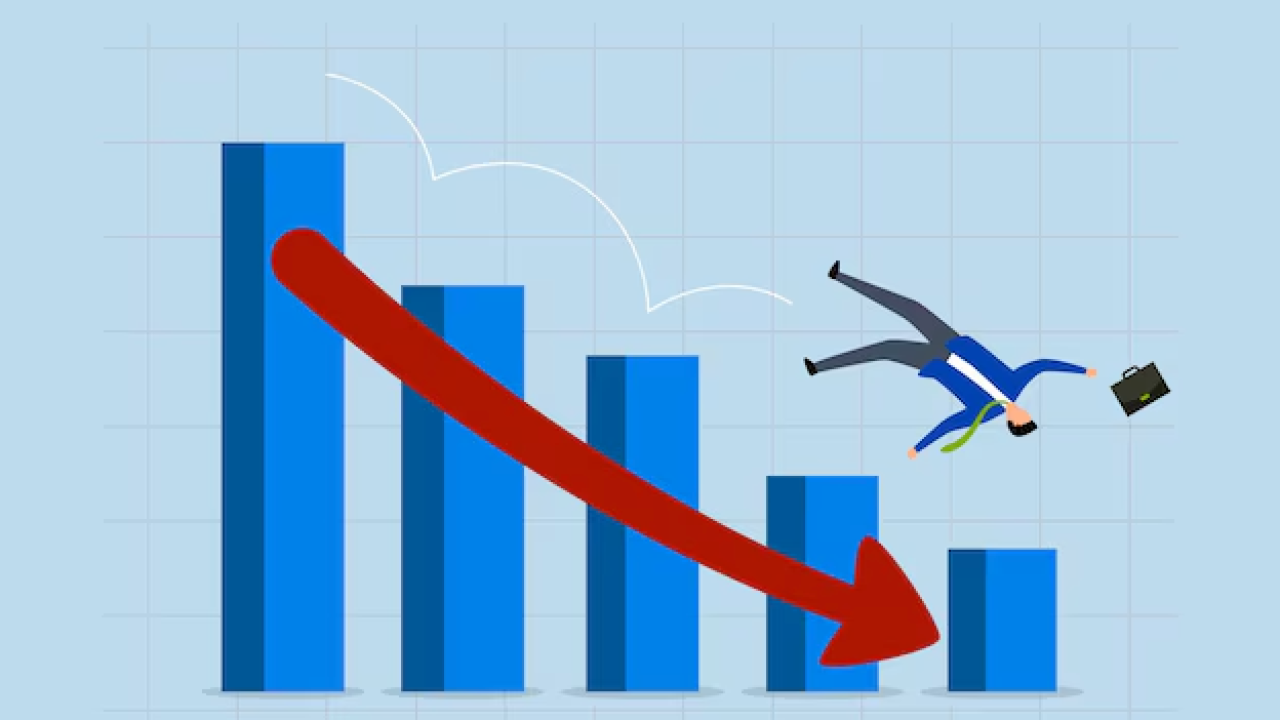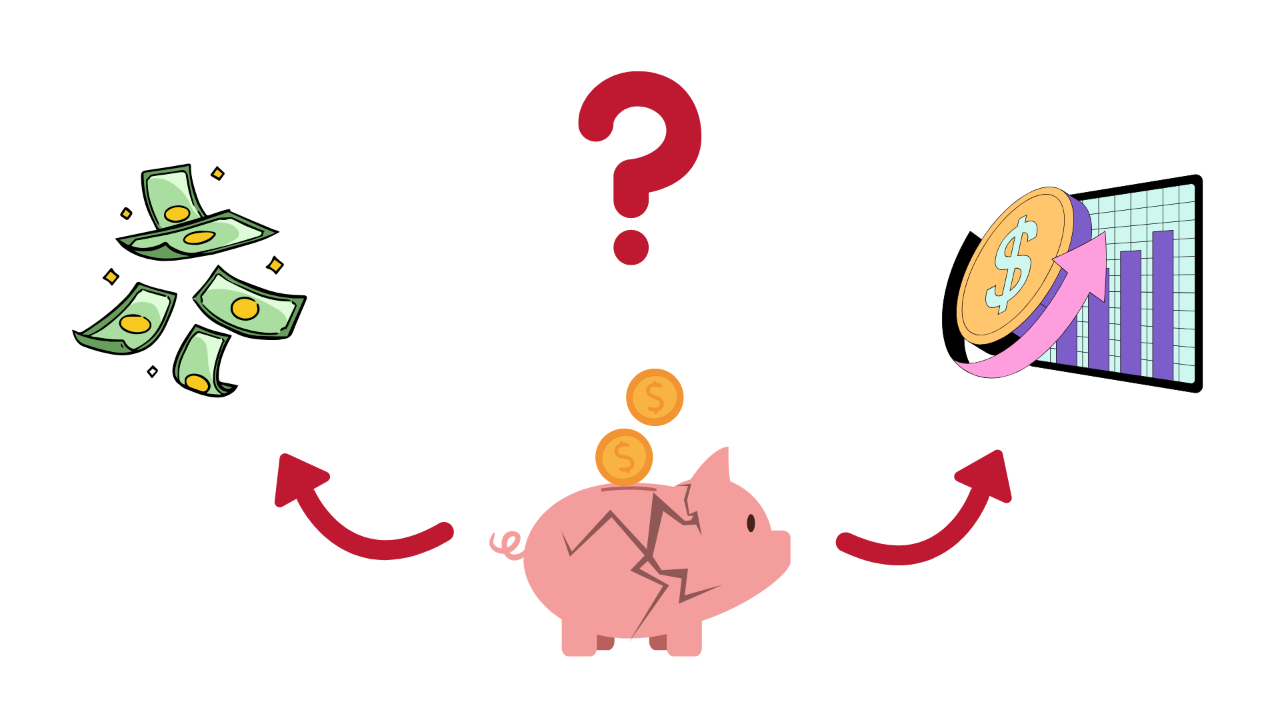
The Handbook for Surviving Market Crashes: What You Need to Know
Jun 08, 2025Hello Stoic Investors,
I recently came across a great question on Reddit from someone asking this:

To the person who wrote this post, I hope you're reading this because, by the time you finish, you’ll have no more doubts about what a market crash is and what to do if one happens!
What is a Market Crash?
A market crash happens when stock prices or other investments drop quickly and a lot.
This can happen because of panic selling, bad news, or big changes in the economy.
While it might feel like a big problem, it’s just a normal part of the market.
Crashes often happen when prices are too high compared to the actual value of companies or assets.
This is called an "overvalued market".
Eventually, these high prices can’t stay, and the market drops fast. If you can spot the signs early, you’ll be better prepared.
Understanding whether the market is overvalued is the first step to being prepared.
To help you recognize if the market is overvalued, follow these two steps:
Step 1: Open Google and Search CurrentMarketValuation.com
This website is a simple and helpful tool to check if the market is overvalued or
undervalued.
It uses easy-to-understand indicators to show you the current state of the market.
Step 2: Look at 3 Key Indicators
Here are three indicators I like to use to see if the market is overvalued or undervalued:
- The Buffett Indicator:
This compares the total value of all stocks to the economy's size (GDP). If the ratio is much higher than usual, the market is overvalued. If it's lower, the market may be undervalued. - The S&P 500 P/E Ratio:
This measures how much people are paying for a company's earnings. High numbers suggest the market is overvalued; low numbers mean it's undervalued. - Mean Reversion:
This checks how current prices compare to their long-term averages. If prices are far above the average, the market is overvalued; if they're below, it's undervalued.
How to Prepare for a Market Crash?
If the indicators show that the market is overvalued, it means that prices are too high compared to the real value of companies and assets.
As we said, this can make a market crash more likely because eventually, these high prices can’t stay, and the market will drop.
Here’s what I would do to be prepared:
Step 1: Invest in Developed Market ETFs
I’d put 40% of my money into a developed market ETF, like SWDA.
These ETFs give you access to big, reliable companies in developed countries like the US, Europe, and Japan.
These companies are less likely to lose value quickly, so even if the market drops, they tend to recover faster.
Step 2: Add Emerging Markets
Next, I’d invest 20% into an emerging market ETF, like XMMS.
These are countries that are still growing, like parts of Asia or Latin America.
While they can be more risky, they also have a lot of potential for growth over time.
(I'd keep investing in these 2 ETFs even if the market keeps crashing; this is because I am a long term investors and I know the market will always recover over time)
Step 3: Keep Cash in Corporate Bond ETFs
In a year like 2025, I would keep the remaining 40% in a corporate bond ETF, like XUHY.
This ETF gives about 6% a year in dividends, which means I get regular payments while keeping my money safe.
I use it to "park my cash".
This way, my money is still working for me, earning interest, and staying protected.
The main reason I do this is because when the market crashes and stocks like Apple and Amazon drop, I’ll have cash ready to buy them at a much lower price.
Most people will be too scared to invest during a crash, but that’s when I’ll be able to buy them at a big discount.
What if You're Already in a Market Crash?
If you’re reading this too late and realize you’re already in the middle of a market crash, don’t panic!
It’s not the end of the world, and you can still manage things.
Here's what to do and what not to do:
1. Look for Deals:
When stocks like Apple and Amazon drop in price, it’s a chance to buy them at a discount.
But why is this a good idea?
When the price of a stock goes down, you’re essentially buying it for less than what it was worth before the drop.
If you believe in the long-term strength of these companies, buying them at a lower price means you’re getting the same valuable asset for a much cheaper price.
This is when you can take advantage of the market's drop to grab high-quality stocks at a bargain price, which can lead to good profits once the market recovers and the prices go back up.
2. Don’t Sell in a Rush:
The market might look scary right now, but selling your investments in a hurry will only lock in your losses.
This is especially important if you’re someone with a long-term investment goal.
Historically, the market has always recovered over time. So, if you stick to your plan and don’t get scared by short-term drops, you’ll be much better off in the long run.
These are the most important things to know about a market crash.
I know it’s a lot of information, but it’s always better to be well-prepared for this kind of situation.
By understanding what a market crash is, how to prepare, and what to do if you’re already in one, you’ll feel more confident in managing your investments.
So, note down these 3 Q&A and start investing today:
1. What is a market crash? It’s when stock prices drop sharply in a short time due to panic selling or economic changes;
2. What should you do to be prepared? Invest 40% in developed market ETFs, 20% in emerging market ETFs and keep 40% in corporate bond ETFs;
3. What if you are already in a crash? Stay calm, don't sell in a rush and look for opportunities to buy stocks at lower prices.





